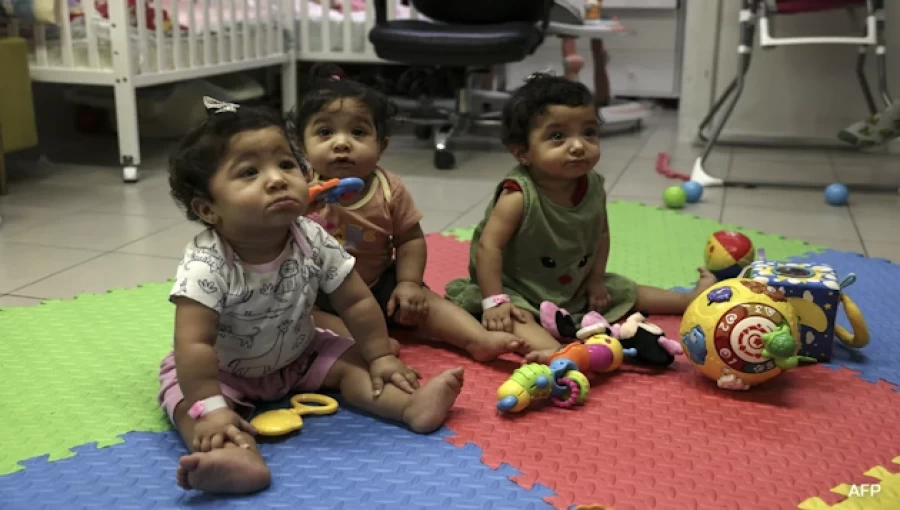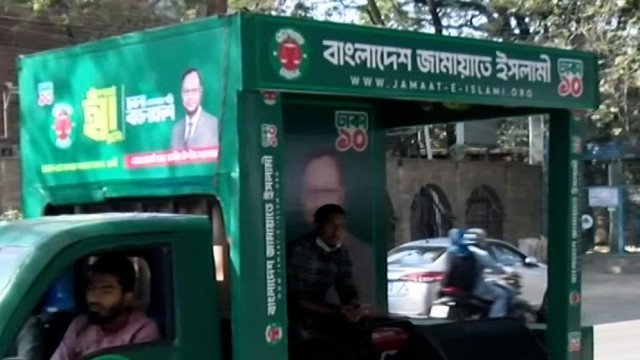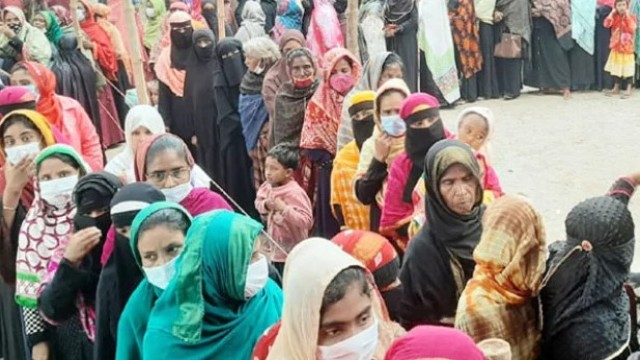JERUSALEM, Aug 28 (V7N)- As the first birthday of her triplets approaches, Hanane Bayouk, a Gaza-native, faces the heartbreaking reality of having seen her children only once since their birth in Jerusalem. The 26-year-old gave birth to Najoua, Nour, and Najmeh on August 24, 2023, but had to return to Gaza alone due to the expiration of her Israeli travel permit.
After enduring seven years of painful IVF treatments, Bayouk was granted a permit to exit Gaza and deliver her babies at Al-Maqased Hospital in annexed East Jerusalem. However, her time with her newborns was tragically brief; she managed to see them for just an hour and a half before being forced to leave as her permit expired.
Bayouk had planned to return to the hospital in early October, after her daughters spent several weeks in incubators. Unfortunately, her hopes were dashed when Hamas militants launched a surprise attack through the Erez terminal, leading to a significant escalation in violence and a subsequent Israeli military campaign that has resulted in a staggering number of Palestinian casualties.
Like Bayouk, Heba Idriss is another mother caught in this tragic situation. She has been unable to reunite with her daughter Saida, who was born prematurely at the same hospital two months earlier. The ongoing conflict has displaced her family multiple times, and her husband has only seen pictures of their child.
Currently, Bayouk lives in a displacement camp in southern Gaza, sharing a tent with seven relatives. The emotional toll is immense; she expresses a deep longing to hold her daughters, fearing they may grow up without knowing her. Despite her pain, she acknowledges that it may be safer for them to remain away from the conflict.
At Al-Maqased, the director of the neonatal intensive care unit, Hatem Khammach, notes that the hospital is facing a significant decline in births due to the Israeli government's restrictions on travel permits for mothers from Gaza. This has left many families, like Bayouk's, in a state of uncertainty and despair.
Health workers at the hospital continue to facilitate phone calls between Bayouk and her daughters, but each conversation ends in tears as she worries about the future and the possibility of never being reunited with them.






























Comment: